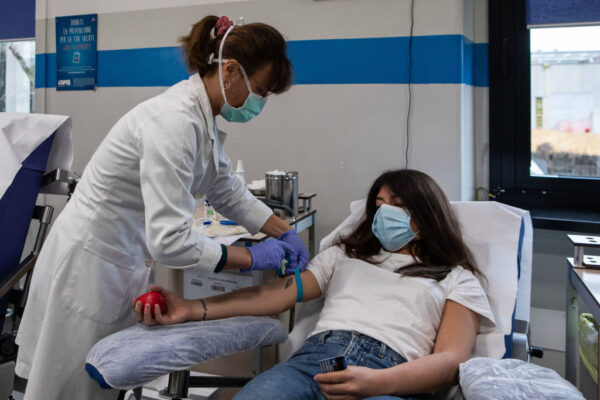
A company developing an antiviral drug as a potential treatment for the novel coronavirus is halting a program that allowed patients who didn’t qualify for its clinical trials to access the drug as it has seen a surge in demand.
Foster City, California-based Gilead Sciences issued a statement that it received a flood of compassionate use requests for remdesivir for patients with Covid-19, overwhelming its emergency treatment access system. Consequently, the company said, it will transition from individual compassionate use requests to expanded access programs. The transitioning process means it will not be able to accept further compassionate use requests.
“In recent weeks, there has been an exponential increase in compassionate use requests for emergency access to remdesivir, related to the spread of the coronavirus in Europe and the United States,” the statement read. “This has flooded an emergency treatment access system that was set up for very limited access to investigational medicines and never intended for use in response to a pandemic.”
Currently, the ClinicalTrials.gov database lists an expanded-access program for remdesivir, sponsored by the U.S. Army Medical Research and Development Command. That’s in addition to two randomized Phase III clinical trials that Gilead is running, as well as a Phase II study sponsored by the National Institute for Allergy and Infectious Diseases, part of the National Institutes of Health. Interest in the drug as a potential treatment for the novel coronavirus, known as SARS-CoV-2, stems from preclinical studies indicating activity against other coronaviruses like SARS and MERS, as well as anecdotal accounts of Covid-19 patients recovering after taking it. Data are expected to become available as early as next month. Remdesivir was originally developed for Ebola virus.
Compassionate use protocols enable individual patients to access a treatment when they do not meet the criteria to enter into clinical trials. The surge in demand came from severely ill patients who were unable to enroll into the company’s Phase III program, which is enrolling about 1,000 patients total.
“This approach will both accelerate access to remdesivir for severely ill patients and enable the collection of data from all participating patients,” Gilead said, referring to the new expanded access programs. “These programs are currently under rapid development in conjunction with national regulatory authorities worldwide, and may vary by region based on local laws and regulations.”

A Deep-dive Into Specialty Pharma
A specialty drug is a class of prescription medications used to treat complex, chronic or rare medical conditions. Although this classification was originally intended to define the treatment of rare, also termed “orphan” diseases, affecting fewer than 200,000 people in the US, more recently, specialty drugs have emerged as the cornerstone of treatment for chronic and complex diseases such as cancer, autoimmune conditions, diabetes, hepatitis C, and HIV/AIDS.
In one of the daily press briefings of the White House’s Coronavirus Task Force last week, President Donald Trump and Food and Drug Administration Commissioner Stephen Hahn pointed to the compassionate use program for remdesivir. Trump also touted hydroxychloroquine, an antimalarial drug that is also used to treat autoimmune disorders like lupus and rheumatoid arthritis. However, in the wake of statements erroneously suggesting that the drug, also known as chloroquine, was more advanced in its development for Covid-19 than it actually is, pharmacies have reportedly seen a flood of demand by apparent hoarders, such that patients using the drug for lupus have been unable to obtain it.
Photo: Emanuele Cremaschi, Getty Images












